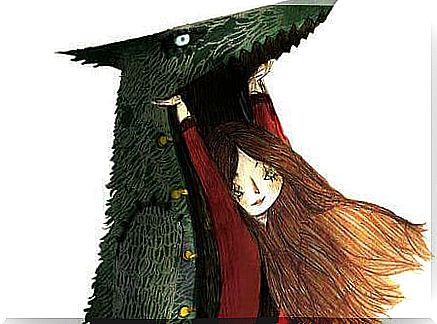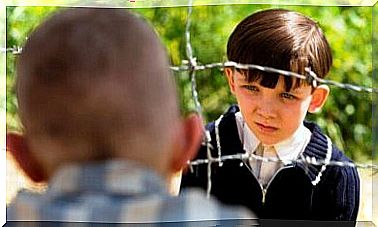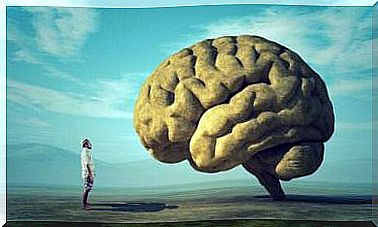Behind The Diagnosis, There Is A Full Person

People who are diagnosed instantly feel like everything is changing, that nothing will ever be the same, and that the past has nothing to do with the present.
It only took one word to change their lives. From that moment, and for a certain time, they will be associated with a word, which will generate suffering in them.
“In animals, it’s eat or be eaten. In human beings, it is to define or to be defined. ”
-Thomas Szasz-
On the other hand, they will also feel that by diagnosing them with an illness, they are put a bag full of stones on their backs.
These people not only have to deal with their personal problems, but also have to adapt to this new situation.
This weight and this rehabilitation involve great efforts on their part.
They sometimes have the impression that the diagnosis is beyond them, that it is an entity of its own, a monster that devours everything in its path, and who has also devoured them.
They may even come to feel alien in their own body, in their own personality, and in their whole being.
Living with the diagnosis
Taking on this new reality and all the changes it entails is no easy task.
Initially, the word is superimposed on the person creating a reality which, although somehow established before it is given a name, now takes on an entity of its own and enters their lives without even to have been invited.
When you come face to face with this monster, you are the only one to decide if you want to hug it and learn to live with it, or if you prefer to wage a battle with it that will leave scars.
This ultimate responsibility for dealing with this new situation is yours alone.

Living with the word and being fully aware of its meaning is difficult and takes time.
Necessarily (or not), at that moment, the label is present, it accompanies you at this period of your life, and you must learn to live with it.
“Experience is not what happens to you, but what you do with what happens to you.”
-Aldous Huxley-
Everything changes and nothing changes at the same time
The seasons are to vegetation what the diagnosis is to a person, like a forest that experiences the change of seasons as the months go by.
Even if the flowers and trees change color, the land that welcomes them is still the same.
Sometimes the person may feel that the land and the trees are the same.
However, as time passes, the leaves of the trees change color and fall, others are born in their place, and that same tree may even stand there or be cut down and disappear forever.
However, despite all these changes, something that remains: the fact that there is always this area where vegetation can take root.

The same is true with people who are diagnosed; the word changes them and does not change them at the same time. On the one hand, a period of their life remains the same, or almost the same, and will always be there.
A diagnosis is NOT an adjective
Sometimes the diagnosis can obscure the person, and lead those around them and themselves to define themselves exclusively with this label.
For example, it is common to hear phrases like “he is bipolar”, “he is depressed” or “he is schizophrenic”.
Not only are these phrases misused, but they also instigate and perpetuate one of the greatest problems of mental illness: the symptom.
Often, diagnoses are used as adjectives, as if they were an immutable trait of the person.
However, a diagnosis is NOT an adjective, a person is not bipolar, depressed or anorexic. People are not diagnoses, labels or words.

A person is who they are, with their own unique characteristics.
It is possible that at some point they will have a disorder, but that does not mean that the person is just that disorder, or that they cease to be themselves.
There is a unique face behind the word
The diagnosis will always be united to a face. It should be remembered that a diagnosis is just a set of symptoms that tell us about the disease, but not about the person suffering from it.
It gives us general information about what can happen to sick people, but it doesn’t tell us anything more about them.
Each person is unique, despite the similarities that we can sometimes observe. We all have a name, personality, family, tastes, quirks and special characteristics that set us apart from others.
A diagnosis will never give us information on these peculiarities, which we must discover little by little.
It is important to manage the diagnosis well; it says something about the person who receives it and it conveys very useful information on a professional level, but also does not deliver all the necessary information.
Never forget that behind a label hides a unique face, a person who feels things and who does not come down to just one word.









